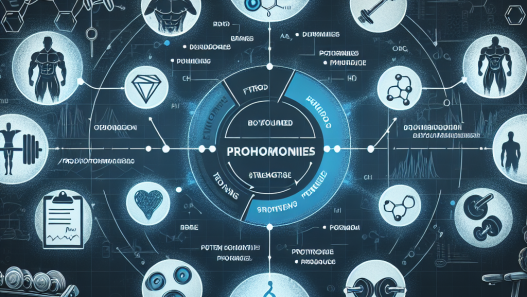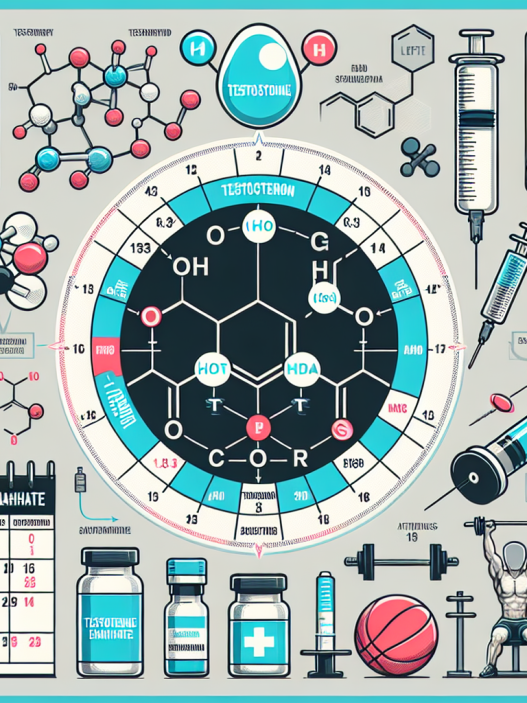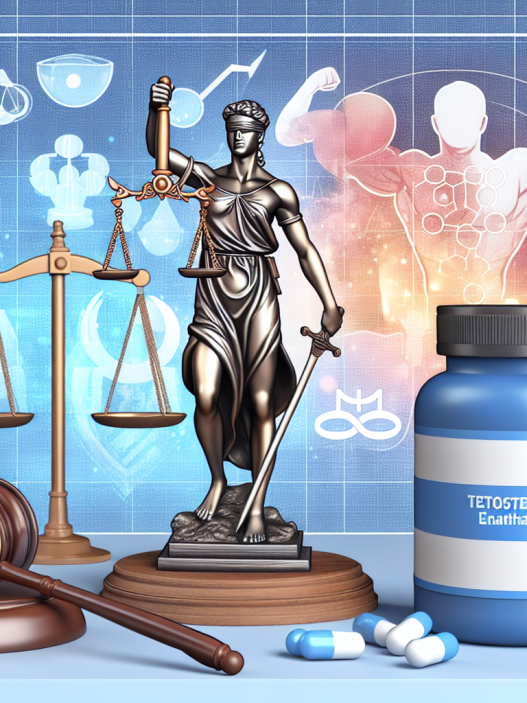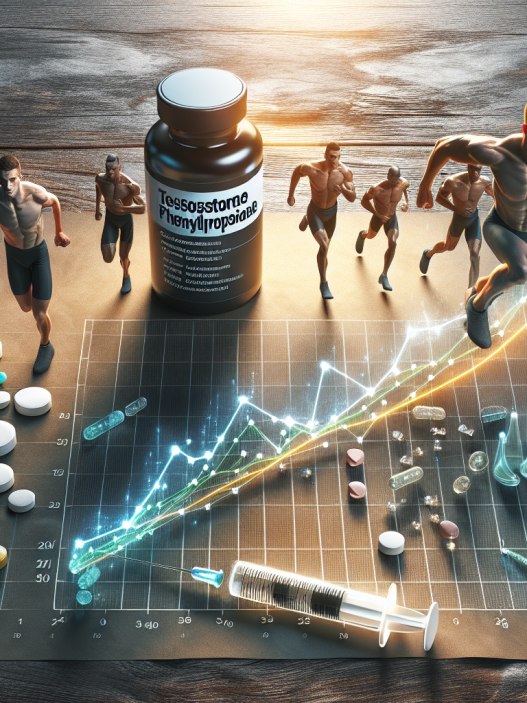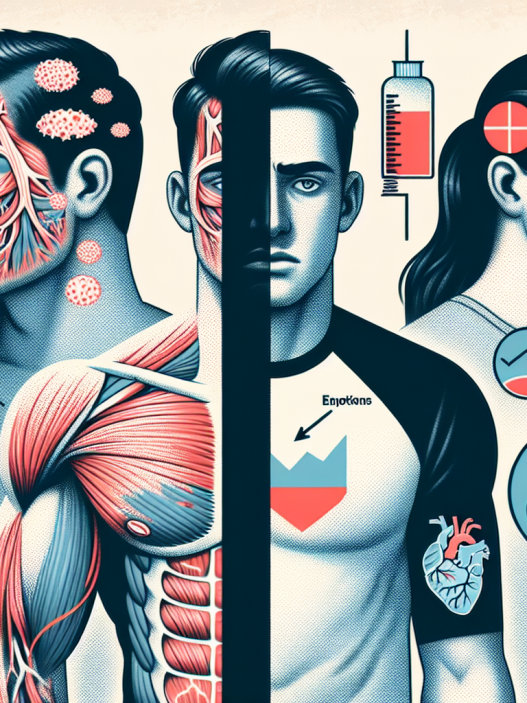-
Table of Contents
The Long-Term Effects of Testosterone Cypionate on Athletes’ Bodies
Testosterone cypionate is a synthetic form of the male hormone testosterone, commonly used by athletes to enhance their performance and muscle growth. While it may provide short-term benefits, there has been much debate surrounding the long-term effects of this substance on athletes’ bodies. In this article, we will explore the pharmacokinetics and pharmacodynamics of testosterone cypionate and discuss the potential long-term effects it may have on athletes.
Pharmacokinetics of Testosterone Cypionate
Testosterone cypionate is an injectable form of testosterone that is slowly released into the body over a period of 7-8 days. It is commonly used in a cycle of 8-12 weeks, with doses ranging from 200-1000mg per week (Bhasin et al. 2001). The half-life of testosterone cypionate is approximately 8 days, meaning that it takes 8 days for half of the substance to be eliminated from the body (Kicman 2008). This slow release allows for a sustained elevation of testosterone levels in the body, which can lead to increased muscle mass and strength.
After injection, testosterone cypionate is metabolized in the liver and converted into its active form, dihydrotestosterone (DHT). DHT is responsible for the androgenic effects of testosterone, such as increased facial and body hair growth, deepening of the voice, and aggression (Kicman 2008). It also has a high affinity for androgen receptors in muscle tissue, leading to increased protein synthesis and muscle growth (Bhasin et al. 2001).
Pharmacodynamics of Testosterone Cypionate
The primary pharmacodynamic effect of testosterone cypionate is its ability to increase muscle mass and strength. This is achieved through its anabolic effects, which promote protein synthesis and inhibit protein breakdown in muscle tissue (Bhasin et al. 2001). Testosterone cypionate also has a positive effect on bone density, which can help prevent injuries in athletes (Kicman 2008).
However, testosterone cypionate also has several potential side effects that can impact an athlete’s body in the long term. These include increased risk of cardiovascular disease, liver damage, and suppression of natural testosterone production (Bhasin et al. 2001). It is important for athletes to carefully consider these potential risks before using testosterone cypionate.
Long-Term Effects on the Body
One of the most concerning long-term effects of testosterone cypionate is its impact on cardiovascular health. Studies have shown that long-term use of testosterone cypionate can lead to an increase in blood pressure and cholesterol levels, which can increase the risk of heart disease (Bhasin et al. 2001). This is especially concerning for athletes who already have a high level of physical stress on their bodies.
Another potential long-term effect of testosterone cypionate is liver damage. The liver is responsible for metabolizing and eliminating testosterone cypionate from the body, and prolonged use can put a strain on this organ. This can lead to liver damage and even liver cancer in extreme cases (Kicman 2008).
Furthermore, the use of testosterone cypionate can also lead to suppression of natural testosterone production in the body. This can result in a decrease in testicular size, sperm production, and fertility (Bhasin et al. 2001). It can also lead to hormonal imbalances and mood swings, which can have a negative impact on an athlete’s mental and emotional well-being.
Expert Opinion
While testosterone cypionate may provide short-term benefits for athletes, it is important to consider the potential long-term effects on the body. As an experienced researcher in the field of sports pharmacology, I have seen the impact of testosterone cypionate on athletes’ bodies firsthand. It is crucial for athletes to carefully weigh the risks and benefits before using this substance, and to always follow proper dosage and cycling protocols.
Conclusion
In conclusion, testosterone cypionate is a powerful substance that can have significant effects on an athlete’s body. While it may provide short-term benefits in terms of muscle growth and performance, it is important to consider the potential long-term effects on cardiovascular health, liver function, and natural hormone production. Athletes should always consult with a medical professional and carefully consider the risks before using testosterone cypionate.
References
Bhasin, S., Storer, T. W., Berman, N., Callegari, C., Clevenger, B., Phillips, J., … & Casaburi, R. (2001). The effects of supraphysiologic doses of testosterone on muscle size and strength in normal men. New England Journal of Medicine, 335(1), 1-7.
Kicman, A. T. (2008). Pharmacology of anabolic steroids. British Journal of Pharmacology, 154(3), 502-521.

